VIRGINIA GORDON
Communications Coordinator
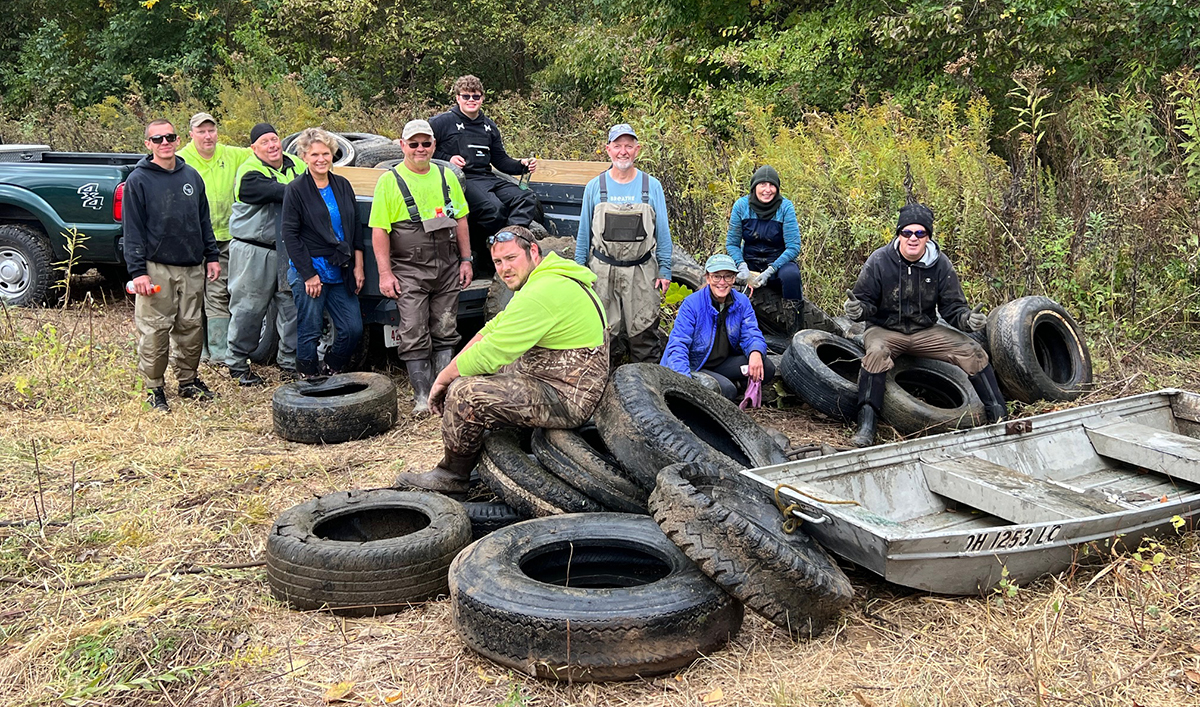
Walnut Creek is a beautiful stream. But it’s also a dumping ground for discarded tires. That’s why Walnut Woods Metro Park joins forces with the City of Canal Winchester every year for its annual Tire Sweep. Walnut Woods and the City have partnered for the past ten years on this labor-intensive but necessary crusade, set for the first Saturday in October.
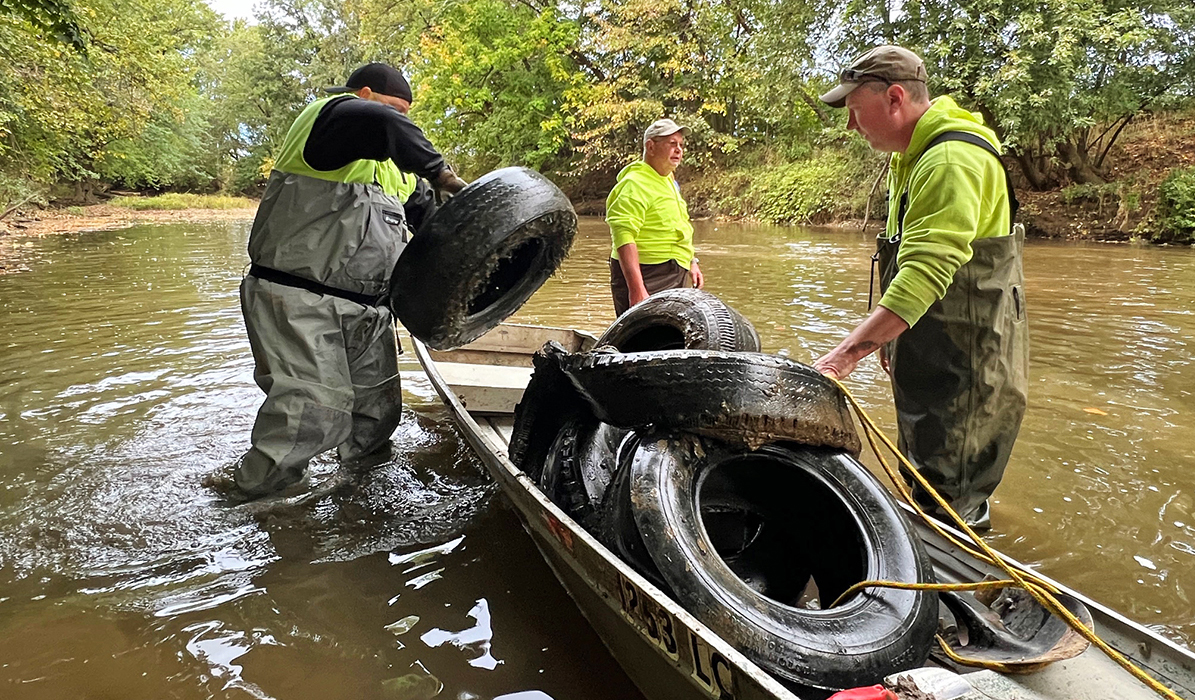
This year’s Tire Sweep saw staff from the park and the City joined by eager volunteers. The group of 13 hardy individuals gathered together at 8am for the start of a four-hour self-imposed sentence of hard labor. For hard labor it is. The dumped tires settle deeply into the sandy stream bed and often have to be partly dugout by shovels before they can be raised. The larger tires often require two, or even three people at a time to dig them free of their tight, sandy embrace. Once raised upright, the tires are rolled towards one of two boats used as tire transports, and hauled free of the clinging water and deposited on the boat deck.
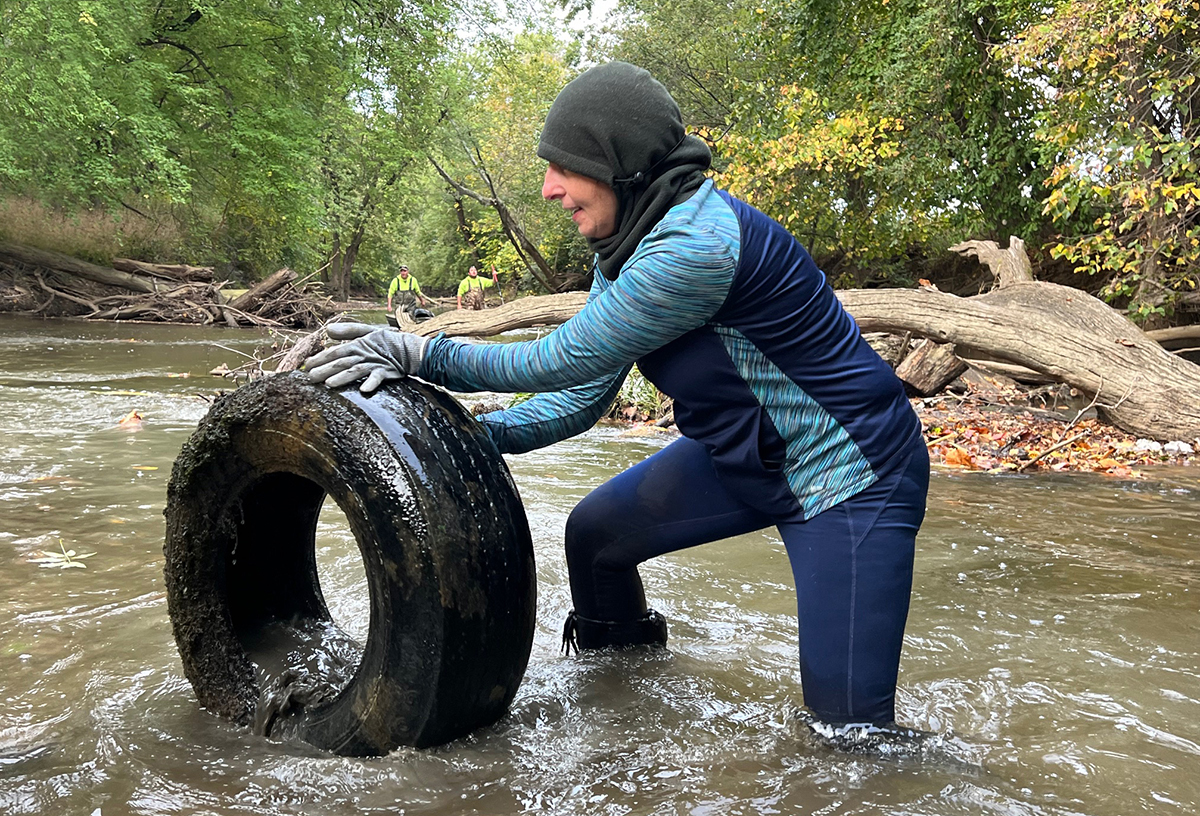
This year, the team selected a stretch of Walnut Creek starting south of Hayes Road, and extending one mile upstream. Early October is a good time for the tire sweep, as the water levels are fairly low and the air temperatures have begun to cool, a real boon for such labor intensive work, although the water is cold to work in.
Whilst most of the tires are completely under water, they can be seen easily because of the lower water level and water clarity. Walnut Woods Park Manager Mindi McConnell, one of the co-organizers of the Tire Sweep, alongside the City of Canal Winchester’s Urban Forester, Dick Miller, says that everyone looks forward to the annual event, but adds, “We’re all sore and cold after it’s done.”
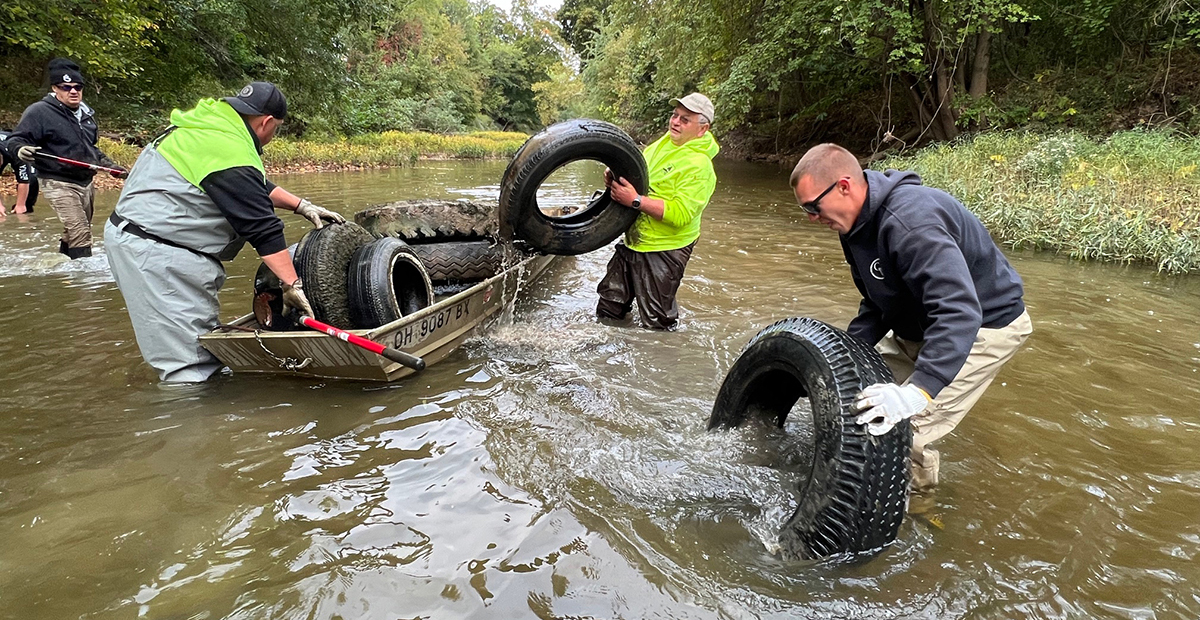
The team always moves upstream on their tire cleanups, as this helps to minimize clouding of the water. In a little over four hours of work, the bold baker’s dozen freed 81 tires from the creek bed. The two flat-bottom Jon boats are about 12 feet long. Once the boats were filled with capacity for towing, the team dragged the boats and their cargo of dumped tires back to their starting point on the creek. Several boat trips were needed by each boat to transport the tires to their disembarkation point. This particular stretch of the creek had steep banks, rising as high as 30 feet above the water level at many points. Even back at the start point, the team had to use a powered winch to drag the collected tires to the top of the creek bank.
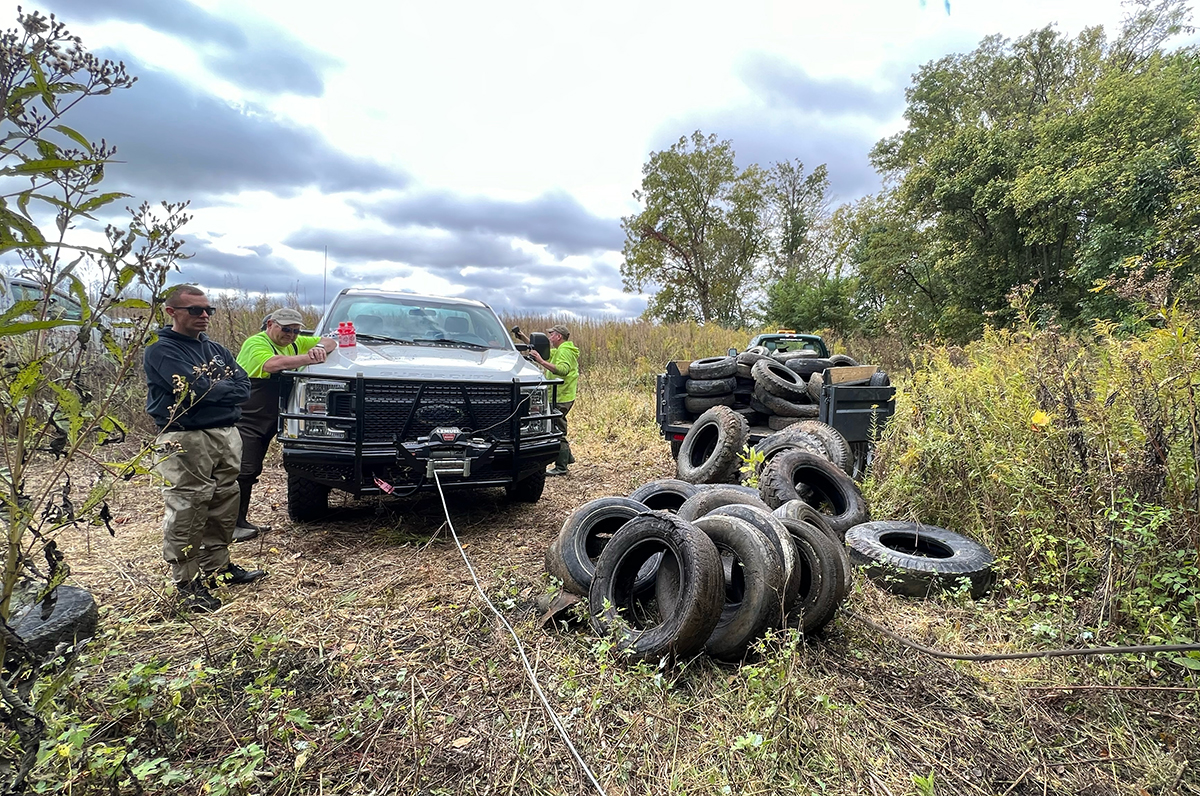
The battery powered winch includes a long steel cable, which the team looped through 10 to 15 tires at a time. The winch is attached to a park truck at the top of the creek bank, and slowly it drags the tires to the top, taking about five or six minutes per load.
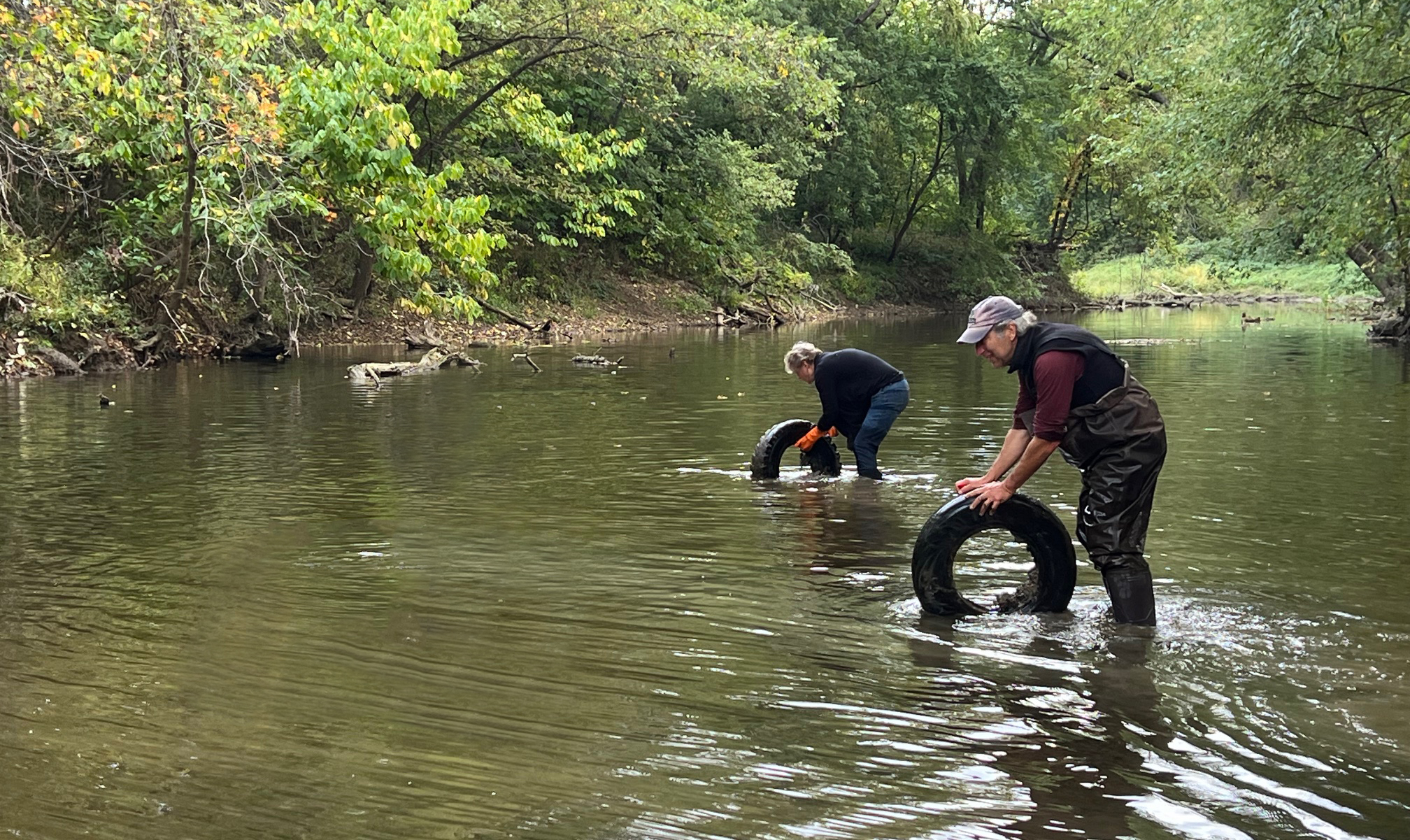
Several volunteers have joined us for years now on this valuable endeavor. Dumped tires are not just an eyesore, they can become breeding grounds for mosquitos and other insects that have negative health consequences for humans and animals, and also release contaminants and dangerous microplastics into the water stream.
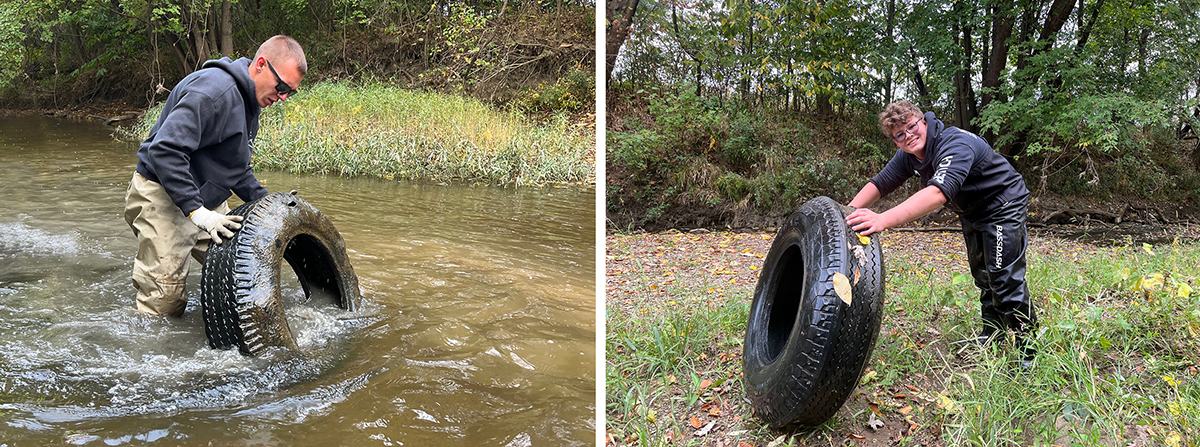
After the Metro Parks team said a fond farewell to their volunteers and colleagues from the City of Canal Winchester, they had another three or four hours of labor yet to go. That’s how long it took the team to move the 81 tires to their truck and attached large trailer. It took two loads to transport them to the park maintenance compound for the weekend. And then they cleaned up the top of the creek bank.
Come the following Monday, over two trips, the Metro Parks team transported the tires to Liberty Tire Recycling LLC in Grove City, which recycles old tires. They weighed the 81 tires and revealed that our magnificent 13 had removed two and a quarter tons of rubber from the creek on that one Saturday morning.

Wow! Sounds like a lot of hard work! Thanks for your efforts.
Great job!
Wow! Why are those tires dumped in the rivers? They should go to some recycling places! Wow, thank you to all who volunteered to remove them from rivers. I am sure fish are freely swimming!
They are dumped because the is a fee to dispose of tires, usually $5 per tire, and the creek or river may be easier to access than a proper disposal site. The same reasons people litter.
Wow! Thank you for sharing this story of this much needed event. Great job to the 13 tire wranglers!
We appreciate what you all have done for the parks and the environment. 👏👏